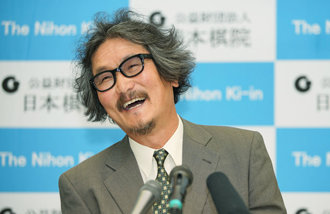Will U.S.-Russia nuclear race bring changes to N. Korea's nuclear deterrence?
Will U.S.-Russia nuclear race bring changes to N. Korea's nuclear deterrence?
Posted December. 24, 2016 07:07,
Updated December. 24, 2016 07:18
The U.S. and Russia, the world’s possibly two strongest nuclear powers, separately announced Thursday (local time) that they are willing to strengthen their nuclear combat capabilities, creating a huge buzz in the global community. “Russia must strengthen the strategic nuclear forces,” Russian President Vladimir Putin said at a meeting with his defense chiefs. Seemingly as a response to Putin’s accounts, U.S. President-elect Donald Trump tweeted several hours later, “The U.S. must greatly strengthen and expand its nuclear capability until such time as the world comes to its senses regarding nukes.” The spokesman for the Trump transition office, Jason Miller, tried to cool down the matter, saying, “Trump was referring to the threat of nuclear proliferation and the critical need to prevent it, particularly to and among terrorist organizations and unstable and rogue regime.” However, the worries are increasing around the world about the current circumstances similar to the cold war era.
During the presidential election, Trump had consistently called for strengthening U.S. nuclear strategic capability, saying, “U.S. nuclear programs are outdated.” Putin also showed his commitments to nuclear race in October, saying, “The U.S. government’s unfriendly behaviors are threatening strategic stability of Russia.” If Trump’s unpredictable actions continue to conflict with Putin’s aggressiveness, the security of “world without nuclear weapon,” which was pledged by U.S. President Barrack Obama in 2009, will be undermined, losing the needed momentum.
The U.S. currently possesses approximately 7,100 nuclear weapons, while Russia has approximately 7,300 nuclear warheads, enough to send mankind back to the Stone Age. Obama received the Nobel Peace Prize for his contributions to “world without nuclear weapons,” which is an ideal shape of the world that the international community sets a goal for. However, the U.S. will never sit in complacency in arms race if Russia continues to try expanding its nuclear combat capability. Against the backdrop of escalating tensions between the U.S. and Russia over simultaneous nuclear upgrades, North Korea could try to beef up its nuclear capability.
South Korea must develop self-defense measures for a possible scenario that the non-proliferation of nuclear power policy is scrapped in the Korean Peninsula. During his campaign, Trump suggested that he would support South Korea and Japan to pursue their nuclear weapons. Furthermore, Trump could realign strategic nuclear forces in South Korea. In this context, the U.S., South Korea and Japan must discuss nuclear direction in the U.S. and its impact on nuclear deterrence efforts to North Korea and security of the Korean Peninsula.
eligius@donga.com







